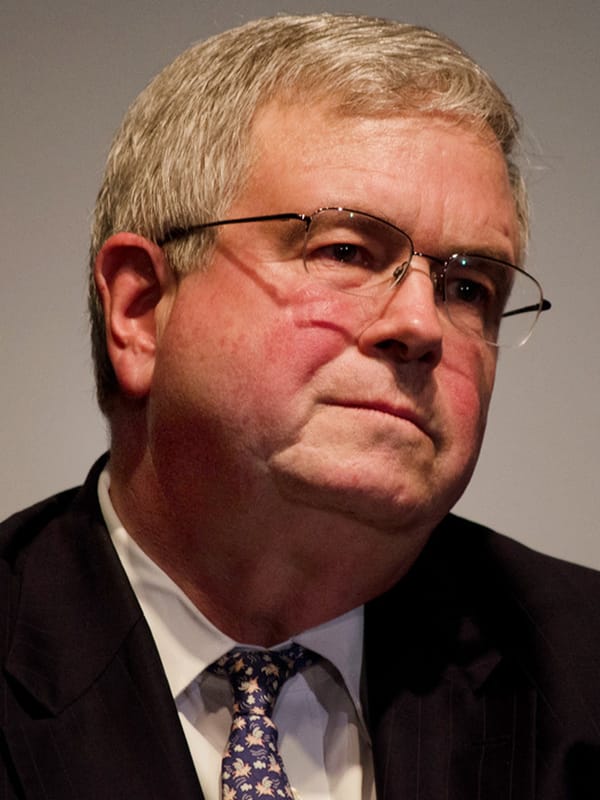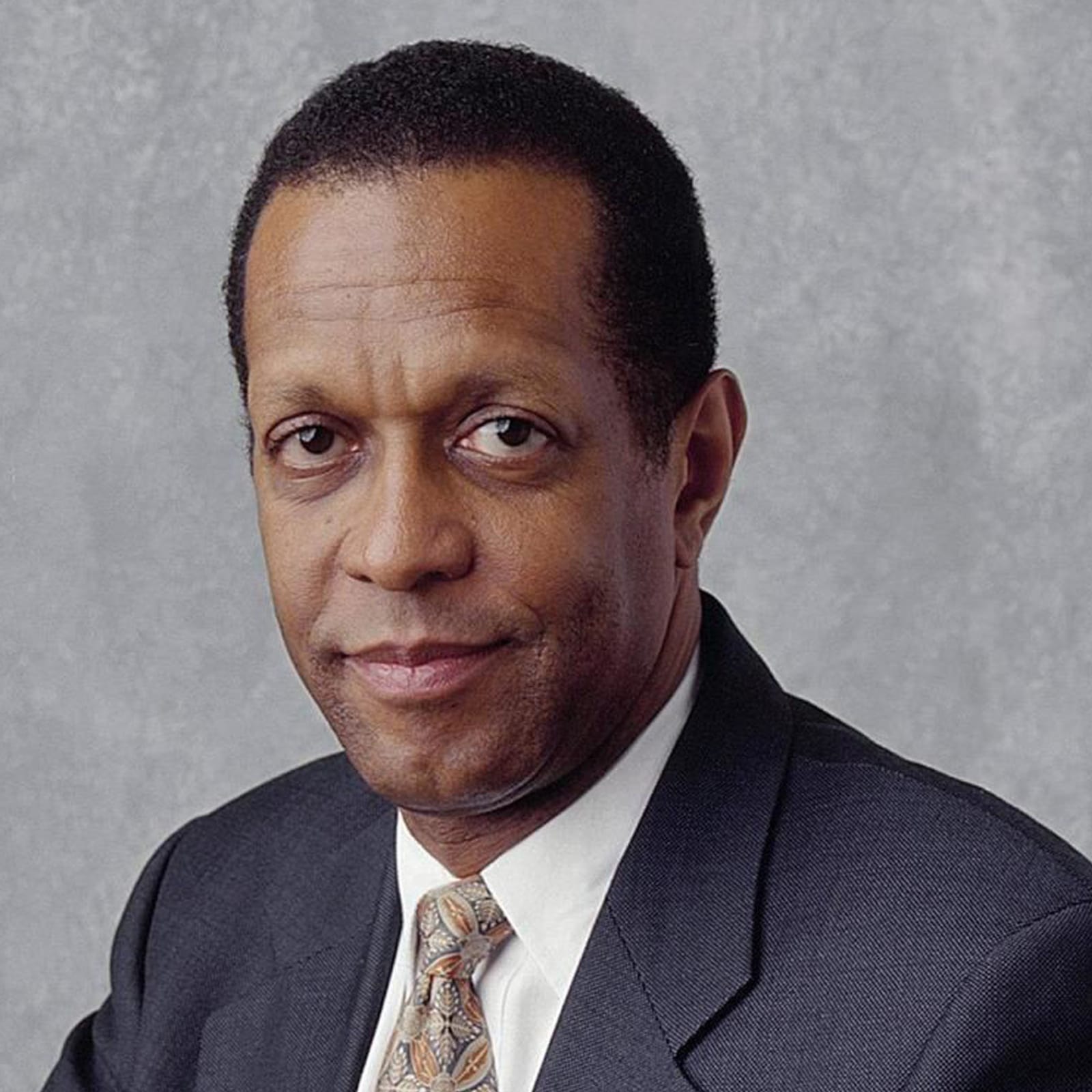- Truth-Telling Prize Recipient, 2009

- Truth-Telling Prize Recipient, 2009
On December 16, 2005, The New York Times published an explosive article about the Bush administration’s warrantless wiretapping program—the secret surveillance of U.S. citizens without the court’s knowledge or approval. “BUSH LETS U.S. SPY ON CALLERS WITHOUT COURTS,” read the headline. Though the story, written by Eric Lichtblau and James Risen, relied on nearly a dozen sources, the reporters had first been tipped off 18 months earlier about the existence of this program by former Justice Department lawyer Thomas Tamm.
Tamm hails from a family steeped in FBI history. His uncle, Edward Tamm, was a top aide to J. Edgar Hoover and as a toddler, Thomas often crawled under Hoover’s desk during FBI ceremonies. His uncle is credited with creating the name for the FBI, as well as its motto, Fidelity, Bravery, Integrity. Tamm’s father, Quin Tamm, was a high-ranking bureau official while his mother, Ora Belle Tamm, was a secretary at the identification division. Even Tamm’s brother, who served on the 9/11 Commission, is a veteran FBI agent.
Thomas Tamm’s career took a different path. The 57-year-old former public prosecutor worked for years in the Montgomery County State’s Attorney’s Office in Maryland before landing a job at the Department of Justice (DOJ). While serving in the Capital Case Unit there, then-Attorney General Janet Reno personally handed him one of the DOJ’s highest honors, the John Marshall Award. In 2003, he transferred to the highly sensitive Office of Intelligence Policy and Review (OIPR).
The OIPR lawyers procure warrants for national security wiretaps of alleged terrorists and spies and present the applications for these warrants to secret hearings at the Foreign Intelligence Surveillance Court (FISA). The FISA court was set up by Congress in 1978 to prevent the sort of abuse of citizens’ privacy by U.S. intelligence agencies that occurred in the 1970s. Presided over by 11 rotating federal judges, this court determined the legal legitimacy of such warrants
It was in the winter of 2003 that Tamm became aware of the existence of a secret program in the OIPR. Roughly 10 percent of warrant requests went through a separate channel that bypassed the FISA judges and could be signed only by the Attorney-General or the chief judge of the court. These warrants looked like all the rest, so Tamm wondered about the need for such an unusual procedure. When he asked colleagues about the process, a senior counsel told him she didn’t know about it but assumed that it was “probably illegal.”
Tamm agonized over what to do. Speaking with MSNBC’s Rachel Maddow—in his first TV interview since the December 2008 Newsweek article revealing his identity as the New York Times whistleblower—he said he was worried that they were aiding and abetting a criminal act. A man who had “spent his entire life dedicated to enforcing the law,” Tamm felt sure that this program was “not what the Department of Justice is about.”
Having decided to speak out, sweating and with his heartbeat racing, Tamm made a phone call to Lichtblau from a pay phone in the subway station at Judiciary Square Metro. According to Lichtblau’s subsequent book about this story, Tamm was “maddeningly vague”—mostly because he didn’t precisely know what the mysterious “program” was about, just that it “didn’t smell right” and ought to be investigated. “It’s stunning that somebody higher up in the chain of command didn’t speak up,” Tamm later told Newsweek’s Michael Isikoff.
When Tamm placed the call to The New York Times in the spring of 2004, he had already grown disenchanted with his job. He missed the courtroom and felt he would be more valuable in a position with greater demand for his legal skills. So Tamm transferred out of the OIPR on his own initiative and started working at the U.S. Attorney’s office. It would take the Times 18 long months to run the explosive story across its front page. Despite the delayed publication of the article, the newspaper won a Pulitzer Prize for the story; the reporters, Lichtblau and Risen, wrote critically acclaimed books.
As for Tamm, five years since his courageous act, he still doesn’t know what his future holds. The FBI has been relentless in tracking down his friends, relatives and former colleagues in order to build a case against him. Not long after the Times story was published, Tamm started getting telephone calls from the FBI. He was also suffering from depression. He had trouble concentrating on work and in late 2006, by mutual agreement with his superiors, he resigned.
In August 2007, 18 FBI officials marched into his home—some wearing black flak jackets and carrying guns—with a search warrant and seized his desktop computer, his children’s laptops, his personal papers, some of his books, even the family’s Christmas card list. They grilled his wife and two of his three children. After the raid, they encouraged Tamm to plead guilty to a felony charge, which he refused to do.
Since his call to the Times, Tamm racked up $30,000 in legal fees and is struggling to make a living practicing law at the assistant state’s attorney’s office in Rockville, Maryland, a suburb of Washington, D.C. Thanks to the publicity resulting from the Newsweek cover story, donations have helped ease his burden of legal debt. He is unsure whether he will be prosecuted or not. He faces potential charges related to two statutes: the disclosure of information vital to national defense and an espionage-related statute related to communications intelligence. Both carry 10-year prison terms. Recent legal decisions and the writings of some of Obama’s nominees for the Department of Justice have given Tamm reason to be hopeful that he will not be charged. The federal prosecutor has told Tamm’s lawyer that his case, though not top priority, is on Attorney-General Eric Holder’s desk, awaiting his decision.
This award is intended to celebrate those who courageously act to preserve the rule of law rather than simply acquiesce to its violation. At great personal risk, Thomas Tamm exposed the lawless activities of powerful forces whose subversion of the Constitution and national security laws recall Ron Ridenhour’s struggle against a military establishment that believed it was necessary to “destroy the village in order to save it.”
Thomas Tamm worked at a Justice Department that, in the name of national security, had abandoned the core principles that form the basis of our democracy and our individual liberties. The fact that he still faces a threat of criminal prosecution at the hands of an institution which itself was operating outside of the law, is in and of itself a national disgrace. What makes Tamm’s case even more poignant is that there remains not a single authorized avenue for a national security whistleblower to use and receive protection when they challenge the Executive Branch for breaking the law. Today, we honor a person who has imperiled his own future liberty to preserve the liberties of all of us who live in this nation.
On April 16, 2009, ex DOJ lawyer who exposed the warrantless wiretapping program Thomas Tamm accepted the Ridenhour Prize for Truth-Telling from The Nation Institute and the Fertel Foundation. You can watch his remarks in the video below.
More 2009 Prize Winners
One Bold Move, Countless Lives: Empowering Humanity, Changing the World.


